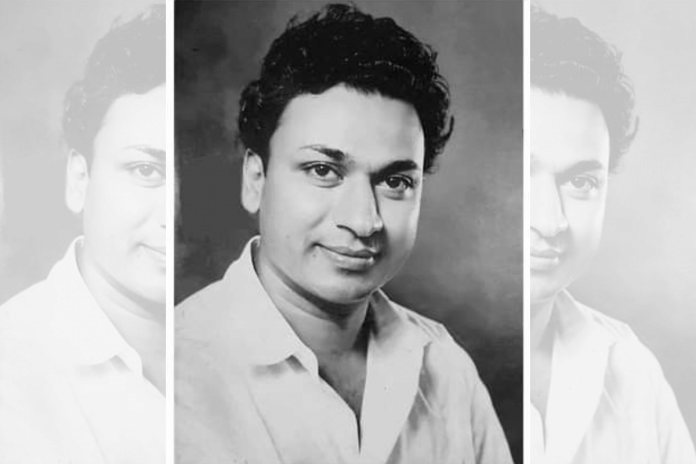Years before the world came to know him by his stage name Dr Rajkumar, Singanalluru Puttaswamaiah Muthuraj, then an unassuming child, started his acting career after an actor in his father’s drama troupe fell ill. He was supposed to play the iconic mythological character Arjuna from Mahabharat. Nobody expected him to do a good job — but the child actor delivered a fine performance. Over the years, he went on to be known as the ‘pride of Karnataka’.
Dr Rajkumar’s real life was as dramatic as his reel life in some ways — he was kidnapped by sandalwood smuggler Veerappan on 30 July 2000 and kept captive for 108 days.
The Kannada actor was born into a family with meager resources — having given up school at the age of eight to work in his father’s theatre company. In 1953, when film director HLN Simha was looking for a new face for his film Bedara Kannappa, he saw the perfect fit in Muthuraj. But the name had to die a silent death. So Simha signed him on and gave him the stage name, Dr Rajkumar.
In a career spanning over five decades with 200 films to his name, Dr Rajkumar only acted in Kannada films. The sole exception was a Telugu movie, Kalahasti Mahatyam (1954), which was a remake of Bedara Kannappa.
Besides his acting prowess, Rajkumar was a skilled singer. Several of his songs from his films. Naanayam from Jeevana Chaitra and Aaneya Mele from Haalu Jenu still rank high on Spotify’s Kannada songs list. The iconic song Joke Naanu Balliya Minchu from Rajkumar’s Paropakari (1970) was recreated in the first instalment of the blockbuster film KGF in 2018.
Man of his words
Rajkumar was a man who stuck to his beliefs and values. In his illustrious career, not even once did he play an antagonist on screen. He never smoked or drank alcohol — either on screen or off screen. Playing righteous characters in films was his priority. And despite such strict adherence to his principles, Rajkumar delivered versatile performances in every movie.
From historical, mythological, and social dramas to James Bond-esque thrillers, the man did it all, and his overwhelming fandom, in return, accepted him with a big heart. Just as he could effortlessly play devotional roles in Navakoti Narayana (1964) or Bhaktha Kanakadasa (1960), he could portray folk heroes in Veera Kesari (1963), Katari Veera (1966), and Bettada Huli (1965).
Padma Bhushan, Dadasaheb Phalke Award, and Karnataka Ratna Award are some of the crowning jewels in Dr Rajkumar’s extensive list of accolades.
One man, many names
Rajkumar is the first actor in the Indian film industry to receive a doctorate in acting from Mysore University. Some call the actor Nata Saarvabhouma (emperor of actors), while others hail him as Bangarada Manushya (man of gold). He is also referred to as Vara Nata (gifted actor) and Gaana Gandharva (god of singing). But among all, he is famously known as Annavaru (elder brother).
His rise to fame as the ‘pride of Karnataka’ coincided with the formation of the state in 1956. It was Rajkumar who became the face of Kannada pride during that period. Many political parties tried to lure him to their side, but he gave politics a wide berth. In the 1980s, though, he joined the fight to officially recognise the Kannada language.
His personal life met a dramatic turn when he was kidnapped by Veerappan. Devastated fans protested by burning shops and robbing homes to pressurise the state government into rescuing the actor. Following his release on 15 November, Rajkumar said Veerappan treated him with “respect”.
The indelible impact that Rajkumar left on his legions of fans was evident when he died at the age of 77 on 12 April 2006 in Bengaluru. Thousands filled the streets, but the funeral was marked by violence not just in Bengaluru but other parts of Karnataka as well. Cars were smashed, buses were burnt, stones were pelted in mourning.
Fifteen years later, Karnataka mourned the untimely death of his son and actor Puneeth Rajkumar.
(Edited by Humra Laeeq)






